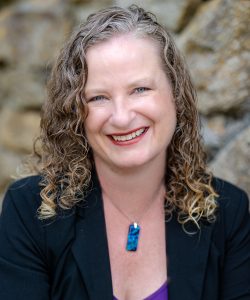5 Ways to Keep Learning About Writing
 Have you ever had a phone conversation that changed your life and in a good way? I did. It happened on a hot July day in 2012. By that point, I rode a high that came from knowing my book would come out with a traditional publisher later in the year. Davis Bunn, one of the most successful writers in the Christian market, and I had begun an e-mail conversation, and he suggested that we speak by phone. Wow! Thankfully, I didn’t go fan girl on him. Instead, we talked writing.
Have you ever had a phone conversation that changed your life and in a good way? I did. It happened on a hot July day in 2012. By that point, I rode a high that came from knowing my book would come out with a traditional publisher later in the year. Davis Bunn, one of the most successful writers in the Christian market, and I had begun an e-mail conversation, and he suggested that we speak by phone. Wow! Thankfully, I didn’t go fan girl on him. Instead, we talked writing.
He had one bit of advice for me. You need to attend a writers conference. Since he recommended it, I did. As I discovered when I made it to California for the 2013 Mount Hermon Christian Writers Conference, I hardly knew anything. I needed an education in the industry of writing as well as the craft, and I got it.
We writers need to keep learning. If we stop seeking education about the craft or the industry, we might as well stop writing. I know. I know. Money’s tight. I understand. You work full time, so leave and time in general are tight. As someone who has a day job, I get that. Have no worries. Opportunities abound in all sorts of ways. Below are five ways to continue learning about writing.
- Attend a writers conference. I truly think this is one of the best ways to get educated on both the craft of writing and the publishing industry. Conferences are generally big events where both agents and publishers attend. While it’s a great way to get contacts, access to agents and publishers can be more limited, and there’s a huge focus on landing an agent or publisher. It’s also not a cheap endeavor. However, the benefits outweigh the costs. As well as a way to learn, it’s an opportunity to make contacts with both agents and publishers as well as those who could be part of your cheering section.
- Attend a novelists retreat. Retreats tend to be much smaller than conferences. At retreats, writers get to interact with faculty in a much more intimate way without the pressure of pitching to an agent or publisher. Costs vary depending upon the retreat. For example, I have an annual retreat with fifteen other writers that I attend each year at the beach. There’s a core group of us who go, and the cost is affordable. I also had the opportunity to attend a retreat that was slightly larger and a little more expensive but so worth it. The key is that the contacts there can be tremendous, and you get to know people not only as agents, publishers, and writers but also as people.
- Attend a writers group. These groups are local in nature and focus on either learning the craft of writing or critiques. For low to no cost, its an excellent way to develop friendships with other writers and to learn about the craft and the industry.
- Pay someone to review work. If a conference isn’t an issue to due to time limitations, consider paying an editor to review work. This is a great option if budget is an issue. However, it’s important to consider the costs of an edit. A content edit can be very pricey. Proofreading is the cheapest, but again, it’s not cheap. Copy editing can fall in the middle. In the years where I did not travel to a conference, I utilized this option for a proofread one year and a copy edit the other year. While I paid well, I equated it with receiving an education in the craft of writing.
- Have an accountability partner. To me, this is one of the most under-served ways in which we writers can learn. We’re each on a journey, and some are a little further down the road than others. What an accountability partner can do has no limits. Naturally, they can hold you accountable to deadlines and completing writing. They can also review work. They can mentor and cheer you on when you struggle.
Regardless of the way you seek education, the important thing is to keep learning. Through education comes relationships as well. Then comes the final step. Take what you’ve learned and apply it.
Question: For the writers out there, how do you keep learning?
I have not received any compensation for writing this post. I have no material connection to the brands, products, or services I have mentioned. I am disclosing this in accordance with the Federal Trade Commission’s 16 CFR Part 255:
Guides Concerning the Use of Endorsements and Testimonials in Advertising.”




No Comments